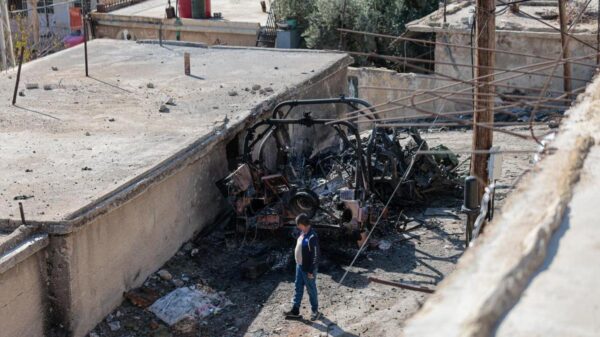Suriname is on the brink of a significant oil boom, a long-awaited development that could reshape the economic landscape of the impoverished South American nation. After years of delays and uncertainties, the government in Paramaribo is now set to capitalize on offshore oil discoveries that have the potential to transform the economy. The recent leadership change to President Jennifer Geerlings-Simons comes at a critical juncture, as the country faces ongoing economic challenges exacerbated by a deep financial crisis.
For nearly a decade, Suriname has been closely observing the success of neighboring Guyana, which has quickly emerged as a new petrostate. Suriname’s offshore drilling, particularly in Block 58, has yielded promising results but has been plagued by setbacks. These delays coincided with a deteriorating economic situation, leading to political instability and the resignation of former President Chandrikapersad Santokhi in July 2025 amid public unrest fueled by economic austerity measures.
The austerity measures, mandated by the International Monetary Fund (IMF), aimed to stabilize the economy, which saw a sharp contraction. From a gross domestic product (GDP) of $5.13 billion in 2015, Suriname’s GDP plummeted by 13% to $4.46 billion by 2024. With nearly one-fifth of the population living below the poverty line, the impact of austerity has been severe, leading to protests and violent unrest in early 2023.
Despite these challenges, the IMF’s review in March 2025 acknowledged progress, stating, “The objectives of the program have been broadly achieved. The economy is growing, inflation is receding, and public debt is declining.” However, the IMF also emphasized the need for Suriname to strengthen its fiscal discipline and governance mechanisms, which were insufficient to retain President Santokhi in office.
The oil discoveries in Block 58 are seen as a potential lifeline for Suriname’s economy. The first significant discovery was made in January 2020 at the Maka Central-1 well, followed by several additional finds, including the Krabdagu discovery in 2022. These discoveries have confirmed a reservoir containing an estimated 750 million barrels of light, sweet crude oil, making Suriname an attractive prospect for investment in a market focused on high-quality, low-emission fuels.
TotalEnergies, a key player in the development of these resources, initially planned to produce first oil from Block 58 in 2026. However, delays occurred due to disappointing exploration results and concerns about reservoir conditions, prompting the company to postpone its final investment decision (FID). In October 2024, TotalEnergies and APA Corporation announced a revised FID of $10.5 billion for the GranMorgu project, targeting first oil in 2028.
GranMorgu, located 93 miles offshore from Paramaribo, is set to develop recoverable oil resources exceeding 750 million barrels. The project will utilize one drillship and a semi-submersible rig, comprising 16 production wells and 16 injector wells, with a projected capacity of 220,000 barrels per day. Additionally, the facility will have storage for up to 2.1 million barrels of oil and will also produce 450 million cubic feet of natural gas daily.
The environmental aspect of the GranMorgu project is noteworthy. TotalEnergies aims to minimize carbon emissions, with extraction projected to emit less than 16 kilograms of carbon per barrel of oil equivalent, which is lower than the global average. This commitment aligns with the company’s goal of achieving net-zero carbon emissions across its operations by 2050 and maintaining Suriname’s status as a carbon-negative nation.
The financial implications of the GranMorgu project are substantial. The national oil company Staatsolie’s 20% stake in the project is valued at $2.4 billion, contributing to its objective of tripling revenue to $1.8 billion by the end of the decade. Estimates suggest that GranMorgu could generate between $16 billion and $26 billion over its operational life, a figure that dwarfs Suriname’s current GDP.
As Suriname navigates these economic transitions, the successful development of its oil resources could provide much-needed revenue to address fiscal challenges and improve living standards for its citizens. The coming years will be critical as the government works to harness these opportunities while facing the reality of past economic mismanagement and ongoing global pressures.





























































